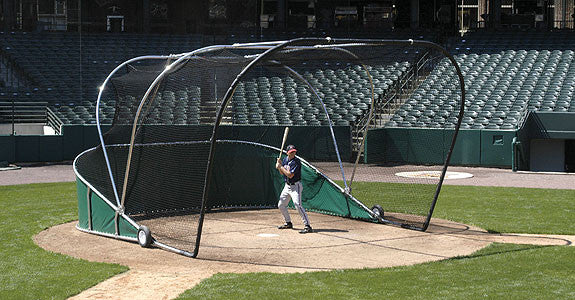What would you do to motivate a player that has all the opportunity to be a good player. He has a manual for pitching and doesn't even look at the workouts, has a batting cage and doesn't spend much time grooving his swing. He is going to be 15yrs. Please advise.
======================
Dear Anthony
If what you describe is true that you have a real problem it you that wants to have the boy be the player. But if he's 15 years old he's got his mind made up of what you would really like to get out of the game so my advice is to sit down with him and have him tell you what he wants and then you do it. It is always been my philosophy of my own boys and players and I've coached for them to tell me what they're willing to do and then hold them to that standard. If they tell me they don't want to play then I say okay what do you want to do, because if it isn't baseball and we need to do something else is my patent answer because we're not going to do nothing. What we do do were going to do to the best of your ability and do it right. It sounds to me like your boy only plays when you wanting to and not because he wants to.
The truth is your raising the boy not to baseball player so be willing to work with him in what he wants to do, is just my advice don't let him do nothing.
Coach Arnald Swift
Good morning Coach,
I was selected to manage a tournament/travel team of 12 year old players who are now training for our Big week long tourney and experience at Cooperstown in July. Starting this Sat nite for the next 10 weeks I landed an indoor facility for which we can have indoor workouts for 90 minutes each week....I was hoping that you could provide me with some guidance in regards to how to best utilize the 90 minutes each week or provide a possible "game plan" as to what drills, how many kids in a group and how many stations I should setup.
Your expert knowledge is greatly appreciated.
Thanks,
Coach Steve
==============================================
Dear Steve
I understand your question very much. The answer is really too long to go through here but you already have the concept of what we need to do is set up stations for hitting (soft toss, front toss, tee work, live plastic ball, live or machine pitch hitting. Hopefully you can created of hitting drills have the first half hour to 45 minutes be the hitting. Then we need to move on to fielding drills (take away the gloves and do soft grounders, put a net at first base put everybody at shortstop take grounders to have them throw into the net like it was the first baseman, spread out all over the field have them take grounders from each other and/or their coaches, learn to throw through the target and not to it- this throwing to a target in set up short hopping everybody you have to learn to throw through it). Then about 15 minutes spent some time on middle work how to approach the batter's box (think about your last bat think about the battered front of you think about the situation all those kinds of things before you reenter the batter's box, if your picture how you going to take to this guy that you faced take a look at how he stands, take a look at his first couple swings, make sure you know the situation with your batter and people on base. Did physically work on situations with runners on base when you do this you can accomplish two things in a time coaching the defense against runners and then coaching the runners to be aware of the situation. This is a big deal to have runners understand- runner on third what I do, runners at first and second what do I do runners at second only what do I do, -- they have to make a decision when the balls hit in the air, when the balls it on the ground, the line drives, past balls, anything else you can think of.
This will get them ready to go to Cooperstown, which by the way is a good experience I had the privilege of umpiring their and found it quite satisfying.
Best of luck and let me know how that all works out.
Coach Arnald Swift
Coach
At what age is a good time to start investing in a personal trainer for ur son in baseball? I'm asking because I have a dad that's so into I "have to have" training for my 11year old son so he can get better... So am I not helping my son get better by being out there throwing the ball around, working on T work and ground work my self? My son has a passion for baseball that he gave up all other sports just to have that ball and mitt in his hand everyday.. Take note also that these two boys average about 80-90 games a year with there travel team... Please help!!!
Dear dad
First and foremost I'm not a big fan of personal trainers, I would rather see you get some good objective advice from somebody that knows what's going on. Then at that point you and your boy and start to make a plan how to continue on with his passion of baseball as you state. 11 year old's just want to play first and foremost. I can tell you right now that it's more important to get in a lot of swings, a lot of drill work, and learn to throw and hit than to get all wrapped up into personal trainers. Granted they might know the correction technique but the reality of it is that they're going to do the same thing that your coaches or you would do. The truth of the matter is I would rather see an 11-year-old play the game enjoy himself and work on drill work with dad or brother on the side than get involved with a personal trainer costing a lot of money and doing the same things that you could do.
Now don't get me wrong I understand the concept of an expert, but most of the time an expert is somebody that just lives 50 miles away.
I know this may sound a little different than your question was asking me but my advice is get a pattern and work on it between yourself and your boy so both of you will enjoy it and it will come out as a good ending.
Coach Arnald Swift
Hello Coach
My son is starting little league (after a few years of T-ball) and I am racking my brain during his first year struggles -- which have been hard on him. He's always held a hockey stick left-handed (as I played lefty too), so I had him in T-ball hold the bat/hit left-handed too and did pretty well hitting this way (a good, contact hitter). But unfortunately, he looks woefully over matched hitting lefty in little league. Admittedly, he's a smallish boy, but it seems he has very little bat control. Obviously he's not hitting the pitching machine at all. Since I played ice hockey as a lefty, but played baseball batting righty, I'm wondering if I have him hitting from his wrong side? I've toyed with him trying righty, but since he's never hit that way, he worse off. I just fell like I may have made a mistake and could be doing him a disservice but now I'm not sure what to do? Any thoughts you have on this I'd love to know and would appreciated it greatly. He's incredibly discouraged and I fear he may give up due to all his failures. Thanks...
Dear Dad
I don't think you've done a disservice to your son, is just a matter of maturity and if he's used to playing hockey left-handed then leaving as a left-handed batter and he will learn. I would look first and foremost at equipment I'm not normally a big fan of blaming the equipment but as I've coached my own grandsons T-ball team and coach pitch I found that they have to have a bat that they can control so make sure you have the right length but more importantly the lightweight so that he can control it during the swing. Then you will help him a great deal if you will work with him on soft toss drills, tee work, and easy underhand pitching so that he can swing and make contact and developed a good swing. It's my advice for you to use plastic balls during this time that way you don't chase them and he will not get you hurt by hitting them back up the middle.
Coach Arnald Swift
Hello, my name is Samuel and I coach at the high school level. I’ve been curious to know what exactly what weaknesses does a coach/pitcher look for in opposing batters. If you explain to me. I feel kind of weird asking this but I really want to get better at assessing the batter so I can be an asset to my team and players. I appreciate the time and hope you respond soon. Thanks again.
Sam
=============================
Coach
That is a very interesting question one that every coach every pitcher ask himself on every batter. And if I can give you a good scientific answer that worked all the time then I would be rich because the truth is you can only guess have a good general idea. The first foremost is that you need to see the batter at the plate a couple of times and keep mental record or physical record of him so that you know how he reacted in previous times it back. If you play a team couple of times then it certainly worth keeping track of.
In general the first thing you look for is where his feet are in relationship to the plate, if he backed off the plate that we need to try to throw outside either with our fastball or breaking pitch, he'll be most susceptible to the breaking pitch he backs off the plate. If the crowds it and is very close to the plate then we need to throw fastballs on the inside. The second thing is when you see him swing his hands dip, state level, or do his arms try to raise to get even with the ball. Another thing that you might look at this is back elbow stay tucked in tight against his body like it should or does he really extend his arms. If he extended his arms and kinda sweet set it make sure you stay down and in with the pitches.
The next thing is really to have your pitcher throw strikes on the first pitch there are very few batters that will swing at the very first pitch so it's important that you though the first pitch for strike and get ahead a little bit because then you have so many more choices when the pictures and control. It doesn't matter which pitch you throw or even location on that very first pitch needs to be a strike then we can start to work on the batter.
When the batter swings as he stepped into the plate, does the step away from the plate, does he swing at pitches even whether not strikes that are high, make note if he swings at breaking pitches or doesn't swing, some batters just can't lay off the breaking pitch and some will not even swing at the breaking pitch.
If he's an aggressive batter that swings early in the count or at bad pitches and make sure you mix and change-ups and pitches off the plate. If he is a non-aggressive batter and goes deep into the count then make sure you throw strikes and don't over think this get ahead you know he's going to try to take the picture deep into the count so get ahead of him and don't worry about where the pitches just worry that it's a strike.
To be honest with you the batter is the secondary consideration it's really the picture if he can throw the strikes early in the count not get behind because all batters become good batters when they are ahead in the count.
So to kind of summarize: pay attention to the batter where his feet are, where his feet go when he swings, what type of pitches he swings at and what type of pitches as he take. These are the things that you need to take note of. After you've done this little while you're going to find there are three kinds of batters the really good ones that are just hitters and you're going to have trouble getting out, the really bad ones that are not going to hit the ball very often you're going to get out almost no matter what, the ones that you really need to look at and concentrate on are the ones that you can affect by making sure your pitcher has a good idea of where to throw, what to throw, and when to throw it. Like I said it's not really the batter as much it is the pitcher paying attention to what each individual is doing, and just as important what he has done history is a great teacher. Batters can't change very often from one time to the next.
I don't know if I've helped you are not but at least he gave you something to think about.
Coach Arnald Swift










